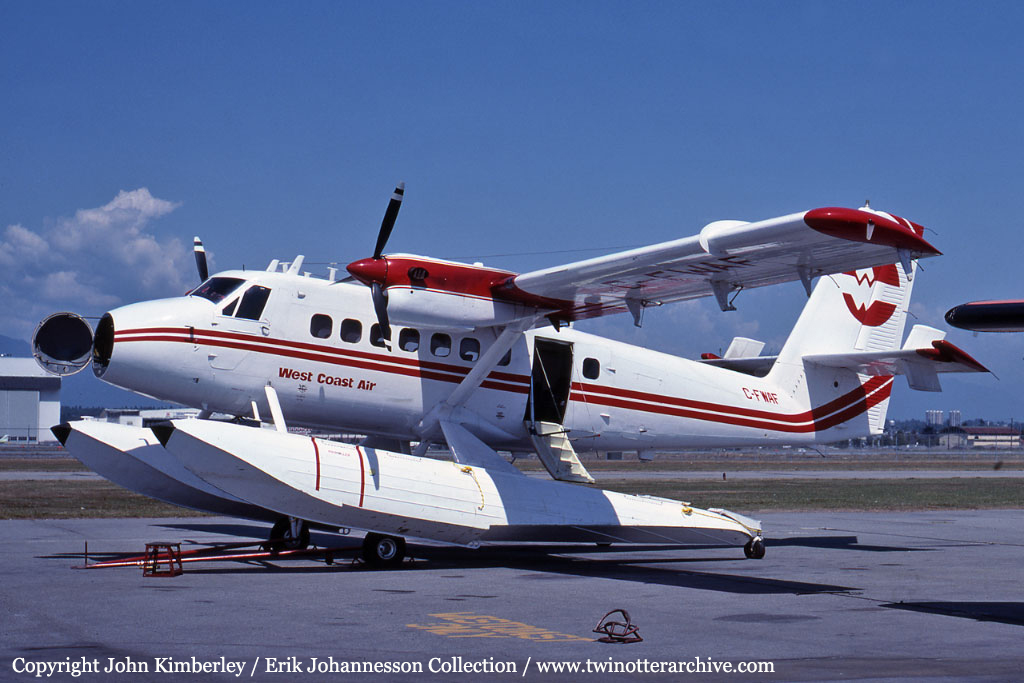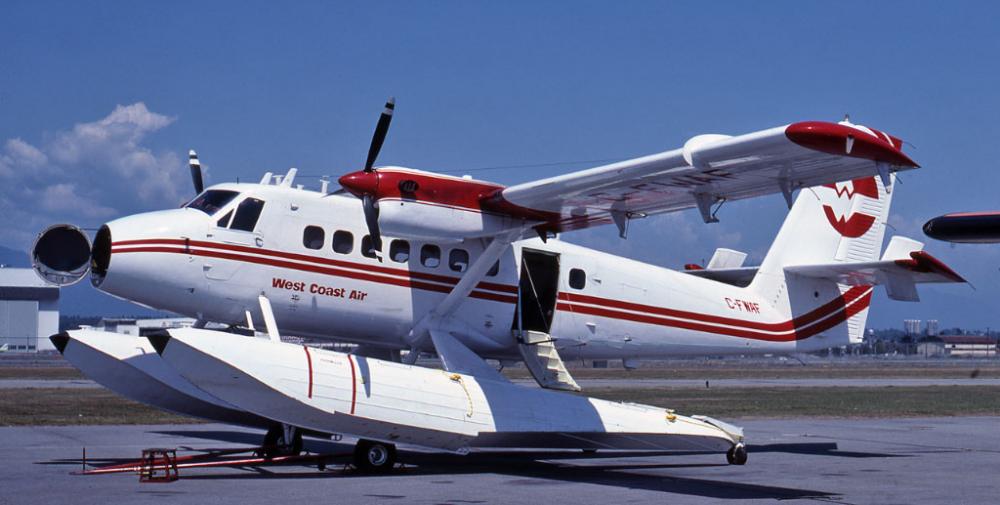Date & Time:
Sep 30, 1979 at 1300 LT
Type of aircraft:
De Havilland DHC-6 Twin Otter
Operator:
West Coast Air Services
Registration:
C-FWAF
Flight Phase:
Landing (descent or approach)
Flight Type:
Scheduled Revenue Flight
Survivors:
Yes
Site:
Plain, Valley
Schedule:
Vancouver – Sechelt – Powell River
MSN:
122
YOM:
1968
Flight number:
106
Country:
Canada
Region:
North America
Crew on board:
2
Crew fatalities:
1
Pax on board:
14
Pax fatalities:
1
Other fatalities:
0
Total fatalities:
2
Aircraft flight hours:
13815
Circumstances:
Flight 106 was a schedule service from Vancouver to Powell River with an intermediate stop at Sechelt. The flight to Sechelt was uneventful. While approaching Porpoise Bay at Sechelt, at an altitude of 200 feet, the twin engine airplane rolled to the right in an angle of 90° then nosed down and crashed on the east shore of the bay, about 50 meters from the water. The captain and a passenger were killed while 14 other occupants were injured, four of them seriously.
Probable cause:
The right-hand aileron bellcrank-to-aileron rod had separated from the bellcrank end fitting due to an extensive stress corrosion crack. This allowed the right-hand aileron to move up, causing asymmetric lift and irretrievable loss of control. The specified visual inspection of the rods was inadequate to detect stress corrosion cracking. Previous similar failures of flap rods on the DHC-6 had led to airworthiness action by the manufacturer and the DOT but these measures were not applied to the aileron rods which are of similar construction.

